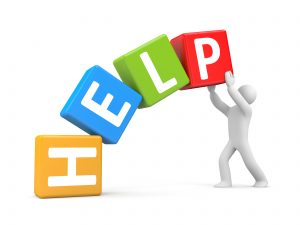 Sensory overload in relation to noise may be referred to as hypersensitivity to noise or phonophobia. This may develop following brain injury or injury to the inner ear. Everyday sounds and/or frequencies may be experienced as uncomfortably loud and/or painful. These sounds/frequencies would be perceived as normal and comfortable by people without brain injury.
Sensory overload in relation to noise may be referred to as hypersensitivity to noise or phonophobia. This may develop following brain injury or injury to the inner ear. Everyday sounds and/or frequencies may be experienced as uncomfortably loud and/or painful. These sounds/frequencies would be perceived as normal and comfortable by people without brain injury.
Hyperacusis refers to increased sensitivity to everyday sounds including particular volumes and frequencies.
Sensitivity to sound is often associated with hearing impairment and/or tinnitus but may also occur without auditory impairment. It is important that any audiological factors are considered and appropriate referral for assessment is made to local audiology services.
It is important to recognise that there may be a number of significant contributory factors in the development of auditory hypersensitivity/phonophobia following brain injury. These may include one or more of the following:
- Hearing impairment.
- Difficulties with attention and information processing.
- Psychological and psychiatric difficulties e.g. high levels of anxiety.
- Behaviour which reinforces the problem e.g. wearing ear plugs may increase sensitivity to sound and further compound the problem.
- Consider other potentially important causative medical conditions and contributory factors.
Hypersensitivity to sound, from whatever cause, can be very disruptive and interfere with the person’s ability to follow conversation and enjoy social interaction and leisure activities e.g. music and T.V. Significant levels of discomfort may occur in environments where there is a lot of background noise e.g. social events, family gatherings, supermarkets, cinemas, restaurants, gyms.
- A clear management plan is required. This is best supported by professionals with relevant experience e.g. brain injury specialist, Audiologist, Clinical Psychologist.
- Provide reassurance and explanation.
- Refer to audiology services for assessment of hearing.
- Encourage the person to wear a hearing aid if prescribed.
- The wearing of ear plugs or earphones may exacerbate the problem and increase sensitivity. They should be avoided unless specifically advised by a relevant professional (e.g. Audiologist, Psychologist, Psychiatrist).
- Do not ‘over protect’ the person from exposure to normal sound levels. This may exacerbate the problem. However, aim to compensate for neurological difficulties of attention, information processing and language impairments by keeping background noise down to a minimum when engaging in conversation or activity.
- Try to reduce the impact of mental health difficulties e.g. high levels of anxiety.
- A desensitisation programme of controlled and increasing exposure to the uncomfortable stimuli is likely to be the most effective treatment for noise hypersensitivity. However if cognitive difficulties are a significant contributory factor, then an alternative management approach may be required. Seek specialist advice e.g. from Audiologist, ENT specialist, Clinical Psychologist etc.
- Some people may benefit from relaxation training. Specialist support will be required.
